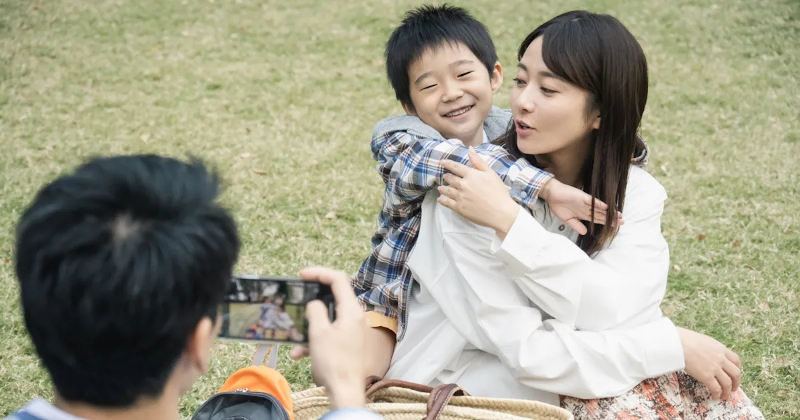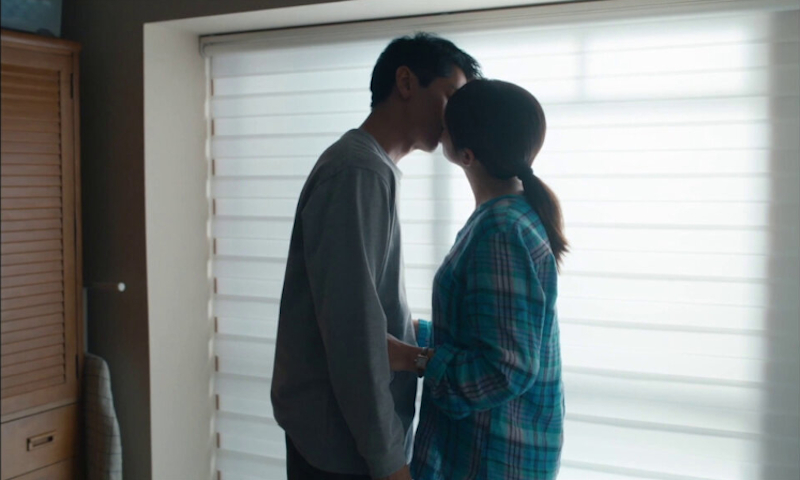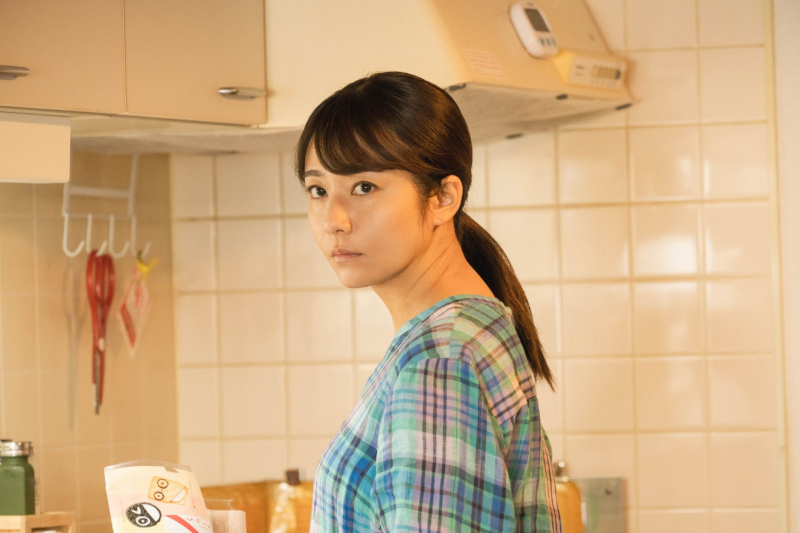Director – Koji Fukada – 2022 – Japan, France – Cert. 12a – 123m
*****
A tragedy involving a woman’s six-year-old child, abandoned by his birth father, wreaks havoc on her already strained relationship with the husband she has recently married – on BFI Player from Monday, November 6th following its release in UK cinemas on Friday, September 15th
A terrific drama about family relationships.
Recently married, young couple Jiro (Kento Nagayama from Villain, Lee Sang-il, 2010) and Taeko (Fumino Kimura) have a six-year-old, deaf boy Keita (Tetta Shimada), a national champion at the board game Othello, which he plays constantly with his mother or with players online. Several of his trophies are displayed in the family’s typical, small, apartment. Jiro’s parents Makoto (Tomoro Taguchi from Fukushima 50, Setsuro Wakamatsu, 2020; Dead Or Alive, Takashi Miike, 1999; Tetsuo: The Iron Man, Shinya Tsukamoto, 1989) and Akie (Misuzu Kanno from 37 Seconds, Hikari, 2019) live in a nearby apartment five or so minutes away across a park and a car park.

Jiro and Taeko invite them over, ostensibly to celebrate Keita’s latest victory but actually for a surprise 65th birthday party for Makoto. The relationship with Jiro’s father is strained on account of Keita’s birth father having abandoned Taeko before Jiro knew her, with Makoto describing her during the party as “second hand goods”. He clearly believes his son could have done better.
Keita, taken with a present model aeroplane, is oblivious to all this, playing with it around the flat until a disastrous accident occurs in the bathroom, brilliantly (not) shown visibly on the screen as a loud thump on the soundtrack, a terrible tragedy that could happen to any family at any time. However Jiro points out that he had repeatedly told Taeko to empty the full bath of water, which she had repeatedly failed to do. She blames herself for the incident, although everyone including Jiro reiterates that it wasn’t her fault.

The episode brings characters from the couple’s individual pasts back into their lives and puts their married relationship under considerable stress. These include Yamazaki (Hirona Yamazaki), the female work colleague Jiro was going to marry who he dumped after falling for Taeko (who doesn’t know about her). A tramp also turns up – Keita’s deaf Korean dad Park Shinji (Atom Sunada) – who slaps Taeko hard in public and emotionally breaks down alongside her in a way that Jiro, who hasn’t yet begun legal adoption proceedings for the child which he was waiting for his own father to accept as his grandson, has been unable to do. The process is, however, clearly cathartic for Taeko, who has been prevented from releasing emotion by her current husband’s inability to deal with the tragedy involving a child not biologically his.
When her former partner can’t or won’t explain why he left her, Taeko understandably wants nothing more to do with him. However, fate has other ideas as Park then decides to claim state benefits in an office where no-one can use Korean sign language, a skill which Taeko possesses and which she offers to use on his behalf as a translator.

When Jiro’s parents subsequently move out of the area – something they’ve been planning to do for a long time – Taeko without telling her husband moves the homeless Park into their empty apartment to give him a temporary home for the period before it’s sold. She keeps telling him they are doing nothing wrong, and for a long time there’s no sign of them transgressing her marital vows with Jiro, who, meanwhile, has restablished contact with Yamazaki…

The way the accident with the child is shot on screen is utterly convincing – if this were to happen to you as a parent, the chances are you wouldn’t see it happening (just as the audience doesn’t) and only discover the tragedy after the fact as Taeko does herself. That, though, is just one detail among many other, equally impressive touches here.
Jiro’s mother and Taeko both have a CD hanging on the balcony to stop pigeons relieving themselves on drying laundry hung there, and when the light catches the one on her in-laws balcony, it projects patterns of reflected light into the younger couples flat, a feature which will give rise to an ingenious and pivotal plot moment later on.
And Keita’s last Othello games both on a physical board and on the internet likewise give rise to moments of great familial significance to Taeko – the physical as she attempts to preserve the position of the counters during a minor earthquake (showing a feature of Japanese life rarely shown on screen) and the online as she makes contact via Keita’s avatar with an online gamer unaware of the situation regarding Keita.

Love Life is ultimately about people’s baggage, things you do or which happen to you in your past which later surface to cause all manner of complications in your present. Nowhere is this truer than in the field of personal relationships, and while the added complications of some people being deaf such as Keita or Park, or a foreigner such as Park being unable to speak the language of the country in which he’s living, further complicated since Park is deaf and using the Korean version of sign language, such issues transcend parochial barriers of specific nationality or disability to play out as universal situations to which anyone can strongly relate. This theme is also key to Fukada’s earlier Harmonium (2016). Altogether, a remarkable film.
Although the film is in Japanese with English subtitles, the title comes from the English language title for the Japanese pop song which plays over the end credits and which apparently inspired Fukada to write the film.
Love Life is on BFI Player from Monday, November 6th following its release in UK cinemas on Friday, September 15th.
Trailer:
